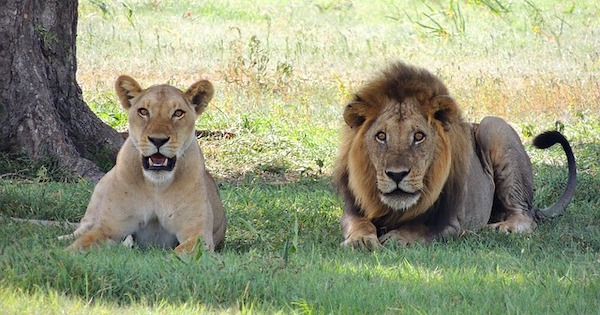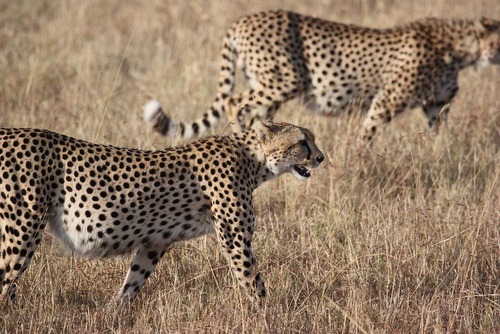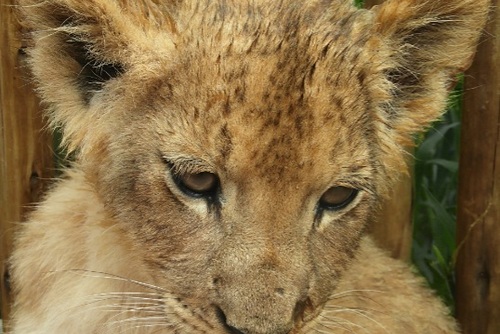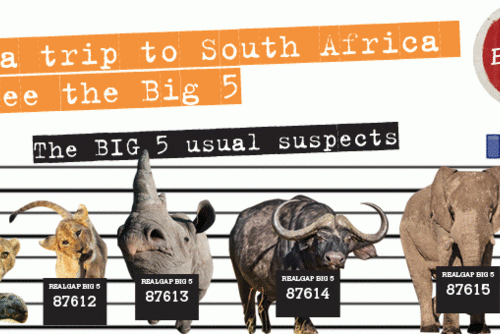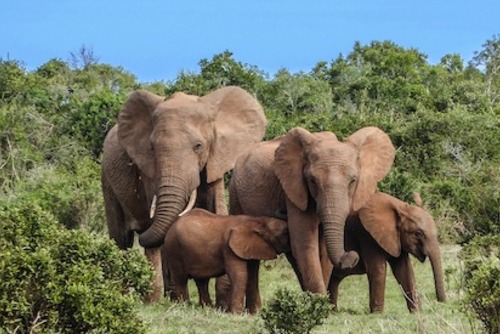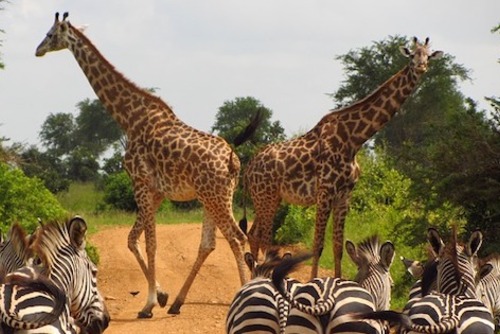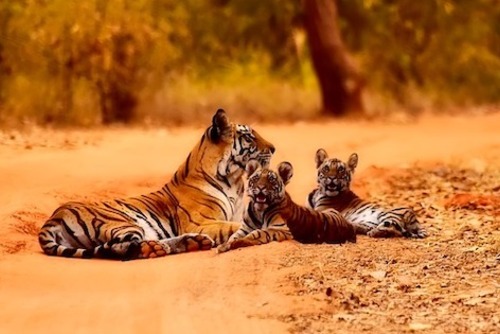Why the Need for Assistance
Lions which have suffered from loss of natural habitat, poaching, drought and disease in the past few decades. Lions are facing an uncertain future in Africa but luckily there are various charities and NGO's who are working to improve their lives and allow them to live in the wild without the fear of poachers and predators. Our lion volunteer programs are ethical and with wildlife organisation charities.
Lions are now facing a bleak future in Africa due to habitat loss and the hunting industry. A lot of lions have lived their lives in horrible conditions living in small cages or trapped on game farms and bred for the inhumane canned hunting industry. Lions really need assistance and this is where you can help wildlife organisations in places like Africa aim to help lions live outside of captivity and release lions back into the wild. Conservation programs are designed to stop poaching and ensure these animals have a future.
When you sign up you will be working in teams of experienced staff who will provide full instructions and training. By participating you can help wildlife organisations create a safe environment for lions and care for these dangerous but stunning creatures. There are really dedicated conservation teams all around the world working to help lions and they would love to hear from you. These projects provide a unique opportunity to interact with lions and see these incredibe creatures up close.
From day one volunteers will be expected to help with the day-to-day running of sanctuaries. Please note we do not offer lion cub volunteer programs and you can view more information about why you shouldn't join these projects below.
Location of Programs
- South Africa
- Zimbabwe
- Namibia
- Zambia
Tasks & What to Expect
Are you wondering about the potential risks to volunteers and the lions? Would you like to know if you will actually be able to help? Helping lions in Africa can be an exhilarating experience, all projects are different but training will be provided on all.
Some days can be long with an early start, please note this won't be a holiday but if you volunteer this will be an amazing opportunity to help lion conservation efforts. All projects we offer are hands off. Daily tasks will differ in accordance with the ever changing needs of the lions. You will gain knowledge from local staff and experienced international wildlife conservation volunteers who have years of experience. Some of the tasks that the volunteers will be involved in include:
- Participate in the daily functions of running the project and environmental centres.
- Help with maintenance, cleaning enclosures and mending fences
- Assisting with educational activities
- Medicating and monitoring the treatment for sick lions
- Collecting/preparing food for adult lions including carcasses
- Leading educational talks to visitors or go into local communities to explain the need to preserve
You will meet people from all over the world, these placements are very popular. In addition to the ongoing research and conservation; most lodges are fully functioning game reserve with paying guests and organised safaris; they also accommodate school groups. Volunteers sometimes stay in fully furnished and fully equipped 2 bed apartments with ensuite bathroom. Most projects have excellent facilities include air-conditioning, swimming pools and a bar. All meals are usually prepared for the volunteers.
Eligibility
You will need to be as enthusiastic as possible on these placements, they are really exciting and its not everyday you get to wake up and see lions. No previous experience is needed to apply, these projects are open to all Nationalities as long as you are eligible for a tourist visa. Please read as much information as possible to see if these placements are right for you. Just watching the film the Lion King and thinking I would love to travel and volunteer in Africa and help isn't enough, you will be required to work hard and really contribute to projects.
How to Apply
If you apply to volunteer with lions through an international volunteer organisation they will charge a fee which includes accommodation, transfers, food and sometimes a donation to the project. Even if you apply locally direct to a project they might also charge a fee to cover meals, transport, training and also to cover the daily running costs. Search featured lion volunteer projects today or view all One World 365 wildlife volunteer projects.
Volunteer with Lion Cubs
Our website features hundreds of projects from the leading international and local organisations in 100+ countries worldwide.
Our aim is to connect people to ethical wildlife programs and we get a lot of enquiries throughout the year from interested potential volunteer who want to contribute to the conservation of endangered species in places like Africa. A lot of animal farms and reserves in Africa that advertise for international volunteers are frequently part of the hunting industry and this is why we have banned the listing of all lion cub activities and lion conservation walks from our project database.
We do not promote lion cub volunteer programs, hands on lion projects and also lion walk experiences in countries like Zambia, Zimbabwe and South Africa. We find it terrible that volunteers, who only care about the well-being of the lions, are used to exploit the animals and we realise as such a powerful resource we have a responsibility to all volunteers to have as much information as possible which is why we regularly inform potential volunteers via e-mail, and also put messages on our website and social media pages.
Background to the Canned Hunting Industry
After researching the canned lion hunting industry in Africa, it has been found that most lion volunteer programs and also lion conservation walks are directly contributing to the hunting industry. Recently there have been quite a lot of news stories regarding some lion breeding facilities who raise lion cubs and then sell them at auction to be used for hunting safaris.
We find this utterly appalling and are totally against this barbaric industry. Some farms in countries like South Africa breed lions, tigers, jaguars and leopards however most of the time none of these animals will ever be part of a re-wildling efforts. Sometimes they are part of a captive breeding program to widen the gene pool and ensure survival of the species. No records are kept of acquisitions, dispositions, births or deaths. Lack of records makes it very easy for farms / projects to dispose of these animals once they are no longer cute and cuddly enough for petting, in any way they see fit. Concrete proof is hard to come by, but circumstantial evidence points towards the fate for many of these animals being less than ethical.
Female lions are often overbred, with litters barely being born before a breeding male is placed back in the enclosure and the females are back in oestrus. Mating is sometimes also permitted between close family relatives such as brother and sister, thus polluting the gene pool even more. These sorts of practices, when engaged in with cats and dogs, belong to operations correctly termed kitten and puppy mills. In a lot of cases lions are not vaccinated or micro chipped. Hygiene is sometimes non-existent and if you have any experience in veterinary you might find it a struggle to introduce even basic standards when instructing volunteers. Veterinary care on some projects is provided only in worst case scenarios and at the continued insistence of those volunteers who are not prepared to toe the project line.
Visitors are also allowed to interact with cubs from as little as one week of age - thus increasing the chance of already immune compromised animals being exposed to pathogens that can cause serious health issues. Domestic animals also suffer, with instances of orphaned calves and kids being mauled by lions or tigers due to inadequate fencing; these animals often had to wait for hours to receive veterinary assistance, if indeed they survived that long. Even one of the project lions had to wait 16 hours to be taken to a vet after having snagged herself on a piece of wire causing severe lacerations.
Once a lion has reached a certain age they will then be sold to be used in the horrific hunting industry. A lot of lion breeding farms are often are very limited with the information they provide as to the where the lions go, but the chances are they are killed for fun. A lot of lion conservation walk providers also never release the lions back into the wild and are kept just to keep making a profit.
Why You Shouldn't Volunteer on Lion Cub Petting Programs
We receive a lot of enquiries about volunteering with lion cubs in Africa. You might think the idea of working with lion cubs as an incredible experience but the harsh reality is very different. A lot of organisations and breeding farms in South Africa advertise for international volunteers and offer you the chance to help raise lion cubs and allow them grow with the aim to increase their numbers in the wild. This might seem like an exciting adventure where you might get hands on experience caring for lion cubs and also take pictures for Facebook and Twitter. But there is a dark side to these opportunities and please do not participate on these programs.
Lion cubs are taken from their mothers at as little as one day old! Sometimes cubs are taken from her mothers within hours and then brought up and fed on a home-made formula which, at no stage, includes colostrum supplements, essential to provide some immunity to the cubs. Lions are hand reared to get them used to human contact and then a lot are sold to be shot as part of the hunting industry. We urge everyone keen to help lions in Southern Africa not to participate in lion conservation walks, lion breeding and lion petting projects. There are so many worthwhile projects which actually are helping with the conservation of lions.
Our Lion Volunteer Projects
We are totally against the barbaric canned hunting industry and do not support this. We check all placements on our website and now we only work with reputable companies who work with wildlife placements with charities like FOUR Paws. The only lion projects we now have listed on our website have been verified by wildlife experts and are ethical. By applying to volunteer with lions through One World 365 will be able to play a key role in wildlife conservation efforts and not have to worry you are contributing to the canned hunting industry. We will continue to work with conservation organisations to assess all projects on our website. If you have any concerns about projects listed on our website please contact us.
What Else You Can Do
When applying to a specific placement always check past participant feedback and be sure to ask suppliers direct questions as to where the lions end up and read more about the issues surrounding these placements. If you are you thinking about applying to work with lions and would you like to know if a specific project is ethical please get in touch with us. You can also get involved with the campaign for the end of the canned hunting industry, the following websites and organisations will be useful to you:
- The Campaign Against Canned Hunting (CACH) is a non-profit organisation registered in South Africa that fights the lion breeding industry in South Africa. CACH’s focus are especially the petting farms that are very attractive for tourists and volunteers and that allow lion breeders to externalize the costs for raising the lion cubs.
- Watch the film Blood Lions
Related Pages

